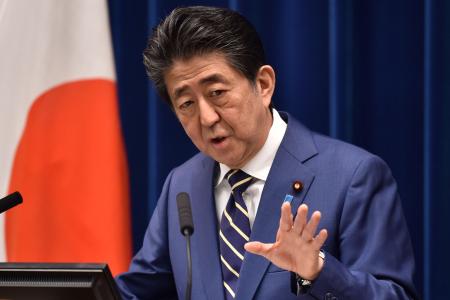
- ARAB NEWS
- 30 Apr 2024

TOKYO: Japanese Prime Minister Shinzo Abe and ruling party policy chief Fumio Kishida agreed Friday on a plan to provide 300,000 yen to each household facing an income drop due to the impact from the coronavirus pandemic.
The cash handouts will be a key item in an emergency economic stimulus package that the government aims to compile as early as Tuesday in the fight against the coronavirus.
The government plans to accept applications for the cash benefits based on self-certification forms and make them tax-free as an exceptional case. It will ask applicants to submit documents proving income drops.
The cash benefits will be offered to households whose incomes have fallen to "certain levels," Kishida, chairman of the LDP Policy Research Council, told reporters after his meeting with Abe.
The government will accelerate work on the details of the plan, including conditions for households eligible for the cash benefits, such as the size of income drops and an income limit.
"I emphasized that the cash benefit distribution should be made promptly," Kishida said.
Explaining the reason for opting for the self-certification system, a government source said, "It is difficult to check the income level of each and every person in the nation."
The government provided 20,000 yen to each young and elderly person and 12,000 yen to other individuals per head in 2009, in the wake of the global financial crisis triggered by the September 2008 collapse of U.S. investment bank Lehman Brothers. The cash benefits were not taxed.
JIJI Press